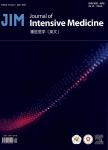Machine learning using the extreme gradient boosting (XGBoost) algorithm predicts 5-day delta of SOFA score at ICU admission in COVID-19 patients
Machine learning using the extreme gradient boosting (XGBoost) algorithm predicts 5-day delta of SOFA score at ICU admission in COVID-19 patients作者机构:Department of Anaesthesia and Intensive CareInfermi HospitalAUSL della RomagnaRimini 47923Italy Department of Information EngineeringUniversitàPolitecnica delle MarcheAncona 60131Italy The BioRobotics Institute and Department of Excellence in Robotics and AIScuola Superiore Sant’AnnaPisa 56127Italy Anesthesia and Intensive Care UnitAzienda Ospedaliero Universitaria Ospedali RiunitiAncona 60126Italy Department of Biomedical Sciences and Public HealthUniversitàPolitecnica delle MarcheAncona 60126Italy Department of Anaesthesia and Intensive CareFondazione Policlinico Universitario A.Gemelli IRCCSUniversitàCattolica del Sacro CuoreRome 00168Italy Institute of Intensive Care MedicineUniversity Hospital of ZurichZurich 8091Switzerland Swiss Society of Intensive Care MedicineBasel 4001Switzerland Department of Anesthesiology and Critical Care MedicineUniversity Hospital of NancyNancy 54511France Department of Intensive Care Erasmus MCUniversity Medical Center RotterdamRotterdam3015 GDNetherlands 不详
出 版 物:《Journal of Intensive Medicine》 (重症医学(英文))
年 卷 期:2021年第1卷第2期
页 面:110-116页
学科分类:12[管理学] 1201[管理学-管理科学与工程(可授管理学、工学学位)] 1002[医学-临床医学] 1011[医学-护理学(可授医学、理学学位)] 081104[工学-模式识别与智能系统] 08[工学] 100201[医学-内科学(含:心血管病、血液病、呼吸系病、消化系病、内分泌与代谢病、肾病、风湿病、传染病)] 0835[工学-软件工程] 0811[工学-控制科学与工程] 10[医学] 0812[工学-计算机科学与技术(可授工学、理学学位)]
基 金:supported by the“Microsoft Grant Award:AI for Health COVID-19″ The RISC-19-ICU reg-istry is supported by the Swiss Society of Intensive Care Medicine and funded by internal resources of the Institute of Intensive Care Medicine,of the University Hospital Zurich and by unrestricted grants from CytoSorbents Europe GmbH(Berlin,Germany) Union Bancaire Privée(Zurich,Switzerland) The sponsors had no role in the design of the study,the collection and analysis of the data,or the preparation of the manuscript
主 题:Machine learning Extreme gradient boosting(XGBoost) COVID-19 Multiple organ failure Clinical decision support system(CDSS) Organ dysfunction score
摘 要:Background:Accurate risk stratification of critically ill patients with coronavirus disease 2019(COVID-19)is essential for optimizing resource allocation,delivering targeted interventions,and maximizing patient survival *** learning(ML)techniques are attracting increased interest for the development of prediction models as they excel in the analysis of complex signals in data-rich environments such as critical ***:We retrieved data on patients with COVID-19 admitted to an intensive care unit(ICU)between March and October 2020 from the RIsk Stratification in COVID-19 patients in the Intensive Care Unit(RISC-19-ICU)*** applied the Extreme Gradient Boosting(XGBoost)algorithm to the data to predict as a binary out-come the increase or decrease in patients’Sequential Organ Failure Assessment(SOFA)score on day 5 after ICU *** model was iteratively cross-validated in different subsets of the study ***:The final study population consisted of 675 *** XGBoost model correctly predicted a decrease in SOFA score in 320/385(83%)critically ill COVID-19 patients,and an increase in the score in 210/290(72%)*** area under the mean receiver operating characteristic curve for XGBoost was significantly higher than that for the logistic regression model(0.86 vs.0.69,P0.01[paired t-test with 95%confidence interval]).Conclusions:The XGBoost model predicted the change in SOFA score in critically ill COVID-19 patients admitted to the ICU and can guide clinical decision support systems(CDSSs)aimed at optimizing available resources.



